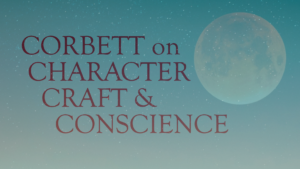Agents
I’m guessing, given Tuesday’s election, most of us have been living in a world of, shall we say, heightened reality the past few days (if not weeks, or months). So, with no desire to diminish the importance or impact of that reality, allow me to offer a bit of a diversion, one I’ve had planned for some time: here’s an interview with Rachel Howzell Hall, known for her bestselling thrillers, about her turn to romantic fantasy with her latest book.
Rachel has been on a bit of a tear lately: her most recent previous novel, We Lie Here, was both a bestseller and nominated for a Los Angeles Times Book Prize. Before that she had three bestsellers in a row, What Fire Brings, What Never Happened, and These Toxic Things (also nominated for the Anthony Award, the Strand Critics Award, and the Los Angeles Times Book Award), with And Now She’s Gone garnering nominations for the Lefty, Barry, Shamus, and Anthony Awards.
With so much success in the thriller category, why jump ship and climb aboard an entirely different genre? I asked her that question (see below).
Meanwhile, The Last One, which comes out December 3, has garnered significant pre-publication praise:
The Last One can be pre-ordered now at Bookshop.Org, Amazon, B&N, Google Books, Kobo, Apple Books, or at your favorite local bookstore.
How did your agent (and/or editor/publisher) respond when you proposed a book so different from your past work?
Actually, it was my agent Jill Marsal who first reached out with the possibility of collaborating with publisher Liz Pelletier. I was thrilled at the opportunity—Liz is a genius. She was preparing to launch a new imprint from Entangled called Red Tower, filled with high-concept ideas she wanted to bring to life. I was honored to be one of the writers she thought would be a good fit for the project.
I get the feeling that this is a book you’ve been wanting to write for some time—have I got that right? If so, what kept you from getting to it sooner? How long did it take to imagine it, plot it out, and then get it down on the page?
I didn’t realize I wanted to write this book until I actually started. I was pretty intimidated by the idea of tackling not just one, but two new genres. I had never written a romance, and I had never written a fantasy. However, I soon discovered that I still had a lot to say—things I’d expressed before in mystery and crime—but now I had the opportunity to explore them in a world I could entirely create. A world without rules, until I made them.
I was offered the opportunity in July 2022 and began writing. I […]
Read MoreWriters often ask me why, with all of Writer Beware’s warnings about bad actors in the publishing world, we don’t also provide recommendations or endorsements of the good guys. “You’ve got this gigantic list of scammers on your blog; wouldn’t it also be helpful to recommend reputable agents and publishers?”
There are several reasons why we don’t do this.
Writer Beware has a very specific purpose: to document and expose schemes, scams, and pitfalls that target writers, and to educate authors on how to recognize and avoid them. As far as we know, we’re the only organization with this exclusive mission. In other words, we aren’t a general-purpose resource: we are quite narrowly focused. We are also a small, all-volunteer team, with limited time and resources.
Also, one size does not fit all. Agents, publishers, etc. have widely varying areas of interest and expertise, and the best agent or publisher or freelance editor or cover designer for one writer might be the worst choice for another. Lists of “good guys” won’t necessarily be very useful, depending on what you write and what your publishing goals are (not to mention, they are incredibly time-consuming and research-intensive to compile and maintain; did I mention that Writer Beware is a small team?). It really is better for writers to do their own research and vetting, armed against scams and bad practice with the tools and knowledge Writer Beware provides.
Finally, recommending or endorsing any particular publishers, agents, etc. risks raising questions of conflict of interest. How do you know, one of Writer Beware’s many haters might inquire, that the agents on that “good guy” list didn’t pay to be there? Of course this would not be true—Writer Beware doesn’t even accept charitable donations—but we want to avoid all possibility of such questions arising. (This is why, when scammers want to discredit us, they have to make stuff up—such as that I own my own publishing company and am badmouthing competitors).
So I can’t suggest which agents to query, which publishers to approach, which self-publishing platforms to consider. What I can do is try to cut through some of the fog and noise of the internet by recommending reliable resources to help with your publication journey. The internet is a goldmine of information for authors, but it is also a swamp of fake facts, bad advice, and scams—and it can be very difficult to figure out which websites are reliable and which experts are actually experts.
Following are a few of my favorite online resources. Some you’ll no doubt already be familiar with, but hopefully you’ll also discover something new. (And of course Writer Unboxed would be on the list, if I weren’t already here!) Most of the resources are free, but some require subscription or a membership fee. Writer Beware receives no consideration or compensation for mentioning them.
GENERAL RESOURCES
The Writer Beware Website. http://www.writerbeware.com/ The Writer Beware blog is WB’s most high-profile online presence, but many people don’t realize that we’re also a very large website. While the blog covers scams and publishing industry issues in real time, the website is a resource for general advice and warnings, designed to empower writers to recognize and protect themselves from schemes and […]
Read MoreMe, walking into a cocktail party at a writer’s conference: I am confident in my writing ability. I have worked hard to improve my craft. I have insights and wisdom worthy of sharing. I deserve my seat at the publishing table.
Also me, walking into the same room: When is everyone going to figure out I’m a hack? I don’t deserve to be in this room.
Which one are you? Do you walk into a room full of writers and feel like you deserve to take up space in the publishing world? Or do fear being unmasked as an imposter?
Or maybe, like me, you do both.
Ever since I walked into my first writing workshop, I’ve been dangling from a pendulum that swings wildly between postures of confidence and crippling imposter syndrome. I believe it’s healthy to temper confidence with a bit of self-doubt, and I believe toxic self-doubt can be righted by remembering your true, honest accomplishments, even if they are small. I have trouble navigating the space between the two.
I’m still trying to figure out how to balance the confident fake-it-til-you-make-it mindset and imposter syndrome, but I’ve learned a few strategies that help me navigate the highs and lows.
Last month I turned in my third novel, The Forest Becomes Her, slated for publication in early 2026 from St. Martin’s Press. I’m already hard at work on my fourth novel, which is also under contract. Six years ago, I would have been giddy to know I would publish a novel. If someone had told me there would be four (and hopefully more) I would have passed out from joy.
But I also would have been skeptical. Why would anyone publish my novels? I’m a hack, I would have thought.
When I started working on my first novel manuscript, I embraced the fake-it-til-you-make-it approach to the publishing world. I believed in my book, but I didn’t have any relevant experience to include in a query letter. I looked at my unimpressive resume, and, instead of giving up, I decided to fill out my CV, one line at a time.
As I continued working on my novel manuscript, I entered contests. Flash fiction, short stories, novel excerpts. So many contests. Most of them led to disappointment, but I won several. I entered the wins into my scant author bio. Award-winning writer.
I submitted widely to literary journals, and, along with a pile of rejections, I received a few scattered acceptances, although, admittedly, they were all from smaller journals. I added these publishing credits to my bio. Published fiction writer.
I contributed essays to numerous websites that accept guest posts and wrote book reviews for a few websites. I was a blogger and book reviewer.
I volunteered to lead some small writing workshops. I was a workshop leader.
None of these minor successes involved platforms like Pulitzer or Ploughshares or The New York Times, but they were legitimate, hard-fought wins, and I was proud of them. I was making small inroads.
After a few years, the bio paragraph in my query letter began to feel respectable. I, however, wasn’t impressed. None of the lines in my bio were false. They weren’t exaggerations. I had won several writing contests, published a handful of essays, reviewed books, published short stories, and taught writing classes. […]
Read MoreAs some of you may already know, in addition to being a highly sought-after shirtless model for romance novel covers, I am also a longtime professional musician, having earned my first money for playing drums at the ripe old age of 14. In fact, music was my fulltime profession until my late 30s. And I didn’t start seriously writing fiction (inasmuch as anything I write could be considered “serious”) until I turned 40. (So you might say that as a writer, I was a 40-year-old virgin. But I digress…)
Coming into a new-to-me art form with a lengthy background in another, I’ve been repeatedly struck by how many parallels I’ve encountered between the two creative paths. It has also been interesting to note the very different experience of learning one art form as a child, and learning another as an adult (inasmuch as a person like me could ever be considered an “adult”).
But I’ll leave the exploration of the whole young-versus-old-artist rabbit hole for some other day. Today, I want to explore five similarities I’ve found in pursuing two art forms – writing and music – at the professional level. I’ll start with the one I think is most important:
1. It’s a business.
Thus far I’ve been calling them art forms, but when you start actively seeking a paying audience for your work – whether written or musical – you quickly become aware that you are dealing with a business, which brings with it numerous rules, obstacles and rites of passage, many of which are not clearly stated or even openly acknowledged. Yeah, it’s fun like that. Trust me: You’re gonna want to wear a helmet.
In each case, because it’s a business, many decisions that will affect your success are A) based on money, and B) out of your hands.
As a musician, this could come down to who is willing to hire you, or to pay to see you perform, or to publish your music (an area that used to be where the money was in songwriting), or to finance your recording and/or tour, or to buy your recordings. Bottom line: It’s about who will spend their money on this thing you chose to do. As the artist, all you can do is make whatever product or service you’re offering as appealing – and as competitive in terms of financial value – as possible.
Writers are in a similar position. Whether you’re pursuing the traditional publishing route, or self-publishing, or trying to get a piece of your dramatic work produced either on stage or screen, somebody else has to decide that what you’re doing (or promising to do) is worth their money.
In both cases, as an artist, you are free to express yourself in any way you see fit. But as an artist who wants to be paid for that art, it quickly becomes obvious that some pathways lead a bit more directly to potential revenue generation than others. Hence my next observation:
2. Genre matters.
For example, a thrilling 70,000-word whodunit with a strong, confident protagonist stands a better chance of selling some copies than a 600-page second-person diatribe exploring the modernist paradigm of discourse that forces the reader to choose between subcapitalist situationism and the dialectic paradigm of consensus. (Incidentally, I have no […]
Read MoreThe current self-publishing industry has its roots in the mid-1990s, when three startups–Xlibris, Trafford, and AuthorHouse–began selling digital publishing services to individual authors.
(Bear with me: I’m getting to the subject of this post!)
Along with similar provider iUniverse, these companies later incorporated under the umbrella of Author Solutions, Inc. (AS). A pioneer in the assisted self-publishing space, AS also pioneered the hard-sell sales tactics, deceptive advertising, and expensive junk marketing techniques that dominate this publishing segment. (Junk marketing: marketing services that are cheap to provide, sold at a large markup, and are of dubious value for book promotion.)
Sometime in the mid-2000s, AS began outsourcing most of its sales and production to the Philippines, where there is a large, educated, English-speaking work force that’s also less costly than equivalent workers in the USA. Inevitably, some of the more entrepreneurial-minded of these staffers, seeing how lucrative it was to convince writers to spend large amounts of money to publish and market their books, decided to set up their own self-publishing enterprises to poach authors away from AS and other companies.
When I first started discovering these AS knockoffs (here’s my first blog post about them), they were mostly just selling Author Solutions-style publishing and marketing packages–although exponentially more overpriced and deceptively advertised than the original, with terrible customer service and the books and other products far more likely to be of poor quality (and that’s when they didn’t just take the money and run).
In recent years, though, their numbers have exploded—there are hundreds of AS knockoffs in operation now, and more cropping up all the time—creating fierce competition for customers in an increasingly crowded field. This has driven them to adopt ever more brazen practices to support their quest for writers’ cash: forging documents and contracts from Big 5 publishers, selling completely fictional products such as “book insurance”, engaging in elaborate front operations involving multiple fake businesses, and impersonating reputable literary agents, publishers, and movie companies.
Impersonation scams especially have become common over the past couple of years, and they can be quite convincing. In this post, you’ll find examples of the three types of impersonation scam you’re most likely to encounter, along with a look at the telltale signs that can identify them.
Read MoreMost aspiring authors and even those among us who have been there, done that, are desirous of the literary Golden Ticket—an agent, preferably a dream agent who ticks off all the things on your ultimate literary wish list. Like Charlie of Chocolate Factory fame when he opened a candy bar to find that shiny gold ticket, countless writers are waiting, wishing, hoping, and crossing fingers and toes to open the email that will allow entry into that exclusive club—the upper echelon of the literary world with an agent by their side to usher them in.
I’m just not one of them.
First a bit of backstory. I’ve had agents, plural. I had one for a few years doing little calorie-counting books with one of the Big 5. But I love telling the story of my second agent just to gauge other writers’ reactions. It was about 16 years ago. My background is in health and nutrition and my day job has been writing about those topics for pretty much my whole career. Another writer in the same field and I got together and wrote a book about nutrition. She had a certain amount of name recognition and we easily got a well-known and respected New York agent, had several in-person meetings with acquisition editors at major publishing houses, there was an auction that ended with a 6-figure advance from one of the Big 5, which even after the agent’s fee and splitting it 50/50 with my co-author, was still 6 figures.
Yeah, I know, right?
My, how times have changed. That would never happen today, of course. Especially with a fiction manuscript from an unknown author. But my point is that I have “been there, done that,” so I know what agent success looks and feels like.
Yes, I’ve queried my fiction. I had my eye on a few agents, who I was certain that if they would take me on, it would spell success. Not the financial windfall of my nonfiction book, but some modicum of success. It was not fun. Any writer who has ever queried knows the obsessive nature of scouring over QueryTracker, keeping Excel sheets of potential agents, checking emails just one more time in case the email arrived in the 5 minutes since you last checked, and the heartbreak of getting form letters churned out to let you know that they “just didn’t connect with the story the way I would have hoped.”
I had no takers, so I queried small publishers.
Jump to present day. My novel, “When Robins Appear,” was published with Red Adept Publishing in 2020 and with more than 1,600 ratings on Amazon, I’m happy as a “pig in mud,” as my southern mother used to say. That’s not to boast, or compare myself to authors getting far fewer or far more, but to show that attracting readers is possible even with a small publisher. Red Adept has accepted a second manuscript for publication, a new book which will be released this coming August. I’m working on novel #3, which I plan to submit to them as well. I have zero desire to subject myself to the slings and arrows of the querying process again. Of course, every writer’s goals, as well as every […]
Read More“Everyone has to start somewhere.”
It’s a familiar truism. And like most truisms, it states a fact so self-evident that there’s no need to really think about it. There’s no start without a starting point, right?
Too often, however, it’s used to dismiss or excuse a lack of skill or training or experience or some other important qualification for doing something that requires expertise.
Because “starting” doesn’t necessarily mean starting from zero. If you start your own law practice, you’ve presumably gone to law school and passed the bar. If you start your own contracting firm, you’ve hopefully apprenticed and/or worked with other builders. If you start your own real estate agency, you’ve taken courses and obtained a license.
Non-zero starting points are just as important for new literary agents and publishers. This may seem obvious—but it’s a fact that writers too often ignore.
THE IMPORTANCE OF EXPERIENCE
Working as a literary agent, or running a publisher, is not an entry-level job. These are complicated, challenging professions that demand specialized knowledge and expertise—not just because skill is needed for success, but because the publishing industry is weird and opaque and clubby and really, really difficult to figure out from outside.
An agent needs—at a minimum–to have contacts at publishing houses and an understanding of publishing contract terms, as well as a nose for marketable manuscripts (not as easy as it sounds). A publisher must—also at a minimum—understand editing and marketing, know how books are acquired and distributed, be capable of creating a fair contract, be able to hire qualified staff–and, just as important, have a business plan.
Such skills don’t come out of the blue. They’re best acquired through training at a reputable agency, or working in publishing in some capacity. Because there are no licensing or educational requirements for literary agents, however, and the easy availability of digital publishing technology makes starting a publisher as simple as setting up an Ingram Spark account, anyone can become an agent or a publisher…even if they have absolutely no qualifications for doing so.
Inexperienced agents and publishers often have unrealistic ideas about what it takes to succeed. They may believe that a love of books and writing is enough to bridge the knowledge gap, or that the scars of a previous bad publishing experience will empower them to do better. They may imagine that publishing is a fun side hustle they can do in their spare time, or that a career in corporate sales gives them skills transferable to agenting. They may not realize the importance of a business plan, and assume it’s okay to skip the prep work—to just jump in and learn as they go.
That’s not to say they don’t have the best intentions. Frequently, they do. But without professional skills and experience, they are at a significant disadvantage, and face a high risk of failure in an extremely competitive industry that’s precarious even for people with substantial credentials.
THE PRICE OF INEXPERIENCE
Brand-new agents and publishers still building their lists offer the possibility of access, in an industry where access is highly restricted and competitive. Along with hope, dreams, and the frustrations of the query process, it’s one of the main reasons why so many writers are willing to give unqualified people a pass.
Failure isn’t the only thing you’re risking […]
Read MoreYou may know me as Greer Macallister, bestselling author of historical fiction, but lately, I’ve taken on another identity. I have a new book out (you may have heard of it) and as the author of Scorpica, my identity has shifted in two key respects: my name on the book jacket is G.R. Macallister, and it’s not historical fiction, but epic fantasy.
All in all, the genre shift has been a pleasure. I wrote something ambitious, complex, and satisfying, proving to myself I was capable of something entirely new. As to the less-pleasant aspects, I went in with my eyes open. I knew that putting out a new book in a new genre, different from the one in which I’ve established myself, would require flexibility and patience. Of course that’s what’s needed as an author in general, but the genre switch put extra pressure on both of those character traits, to say the least.
Do I regret changing genres after four books (while reserving the right to switch back at any time)? Not at all. But do I have advice for those thinking about making the switch? You bet.
If you’re an author with an established readership in one genre looking to publish in another, here are three things to watch out for:
Don’t underestimate the time that it takes. Maybe if you’re shifting between subgenres this might not be an issue, but in my case, making the move from writing historical fiction to writing epic fantasy wasn’t just about writing a different book. It was about learning to write a different kind of book, almost from the ground up. Reading up on current fantasy was a fun task to assign myself, but it was a task nonetheless — hours and hours of reading, to fit in among all the other reading I do for work and for fun. So that’s a bunch of time up front. Plus there’s…
You might need to shake up your team, which takes even more time. The agent who has sold all of my historical novels is fabulous and wonderful, but she doesn’t represent epic fantasy, and the publisher who published those books doesn’t really do adult fantasy either. Which meant it wasn’t just the writing itself that was different, but every other aspect of managing and selling this new book. My incredibly kind agent gave me the go-ahead to connect with a separate agent just for my fantasy work, and my agreements with both were written to accommodate the other, and it’s been a dream so far. But making that dream happen through querying and negotiation took an extra half-year on top of the writing work, and without extraordinary luck it could have been much worse. Other friends shifting genres have had to leave old agents and find new ones, or strike out on their own with self-publishing ventures, and both of those are even more time-consuming. And on top of that…
Readers may not follow you — and they’re not the only ones. I was certain that some of my readers who enjoyed historical fiction focused on strong women would also enjoy epic historical fantasy focused on strong women, and they were. But I was equally sure that plenty of my historical fiction-loving readers would […]
Read More
Please join us in welcoming Victoria Strauss to Writer Unboxed as a new regular contributor. Victoria is not only a multi-published novelist and author of short stories, she is the voice of Writer Beware–a group dedicated to empowering writers by unmasking writing scams and schemes. We’ve been fans of Writer Beware and Victoria Strauss for as long as we’ve existed here as a site, and we could not be happier to have her as a member of the WU team. Welcome, Victoria!
When I do presentations and Q&As, I’m often asked to name the most common scheme or scam writers need to watch out for.
Usually, I have to think a moment before I answer—not just because the universe of writer-focused predation is constantly evolving (for instance, there are far fewer fee-charging literary agents now than there were when Writer Beware was founded), but because the ways in which writers can be tricked and exploited are so many and various that it’s hard to choose.
These days, though, I can respond without hesitation. By far the most prevalent writer-focused scams are solicitation scams.
Solicitation scammers contact writers out of the blue with publishing-related offers that seem too good to be true. A literary agency is interested in your work! A prestigious publisher wants to acquire your book! A film producer wants to turn your novel into a movie! A marketing company can expose you to millions of potential fans!
You know the old adage, though: if it sounds too good to be true, it probably is. In reality, these offers are not about boosting your career or raising your profile. Whatever enticing carrot a solicitation scammer may dangle before you, the real aim is to get your money.
Solicitation scams and schemes are not new. Back in the days of snail mail, costly print vanity publisher Dorrance Publishing was notorious for soliciting submissions from copyright registration and magazine subscription lists. (Dorrance has re-tooled itself for the digital age, so its solicitations now come via email.)
Profiteering contest and awards programs have also long been prolific solicitors (for instance, J.M. Northern Media, which runs multiple high-entry-fee “festivals”), as have bogus Who’s Who registries. Predatory author mill Omniscriptum regularly solicits submissions to its many imprints, and if you write nonfiction, you may have been contacted by Close-up TV News, a pay-to-play “news” program that has been chasing customers for nearly two decades.
Over the past three years, though, the volume of solicitations has exploded, driven by a huge rise in publishing-related scams from overseas, and also by the pandemic, as in-person networking and marketing opportunities for writers have dwindled and online activity has increased. Self-published and small press authors are the solicitors’ favorite marks. But any writer can be a target.
WHAT YOU MAY ENCOUNTER
Fake Literary Agents and Agencies
Real, reputable literary agents—whose inboxes are overflowing with submissions and who have no need to solicit clients–rarely reach out directly to writers they don’t already represent. For scammers, on the other hand, cold-call solicitation is their main recruitment method. And large numbers of them are posing as literary agents and agencies.
Fake agency solicitations typically involve strategically […]
Read MoreOne learns a lot about one’s writing habits—and oneself—when cutting almost 19 percent of a manuscript, paring it from 119,000 words (476 pages) to 97,000 words (409 pages).
Mind you, this wasn’t a first draft—it had been reviewed twice by a Zoe Quinton, a developmental editor I very much respect and trust (and whom I interviewed here at Writer Unboxed). After our work together, she said:
“SO well done. I’m blown away by the amount of work you did, and how well you integrated all the pieces together to form a truly stunning, gripping whole. I loved every minute of it, and nearly cried at the end, even knowing what the basic setup would be. You’ve got a hell of a book here, one of the best I’ve ever worked on. Bravo.”
Once I began submitting to agents, however, with the exception of two agents I’ll discuss shortly, I either heard nothing back or got the seldom helpful, “Not for me, good luck with it elsewhere.” The two agents who provided some feedback said two very different but very helpful things. (It’s currently under submission with two other agents, one of who seems particularly receptive.)
The first of the two agents who provided notes complimented my writing but remarked that my use of a gay, bi-racial (Cambodian/African American) woman main character made the book virtually impossible to sell in today’s cultural environment given the #mystory movement.
The second agent, despite liking a great deal about the book, comparing it at one point to American Gods, felt a lack of “narrative urgency” in the writing.
In discussing all this with Zoe, she responded that my female character’s sexuality and race had raised no reds flags for her, and she is sensitive to such things. She also found comparing the book to American Gods then bemoaning a lack of narrative urgency puzzling, as Neil Gaiman’s novel is hardly a full-throttle page turner, but shares some of the philosophical, mythical, and historical texture of my book.
Let me be clear: I in no way fault Zoe for the extensive post-edit rewrite I ended up conducting. Her job was to read the book, note its shortfalls as she saw them, help me correct them, while at the same time being conscientious of what she saw as my voice, my style, and the type of book I seemed to want to be writing—a big, sprawling, dystopian journey covering a great deal of the American landscape with a mythical backdrop.
But given my respect for the two agents who gave me notes, I felt obliged to pay attention to what they were telling me.
Read More





















